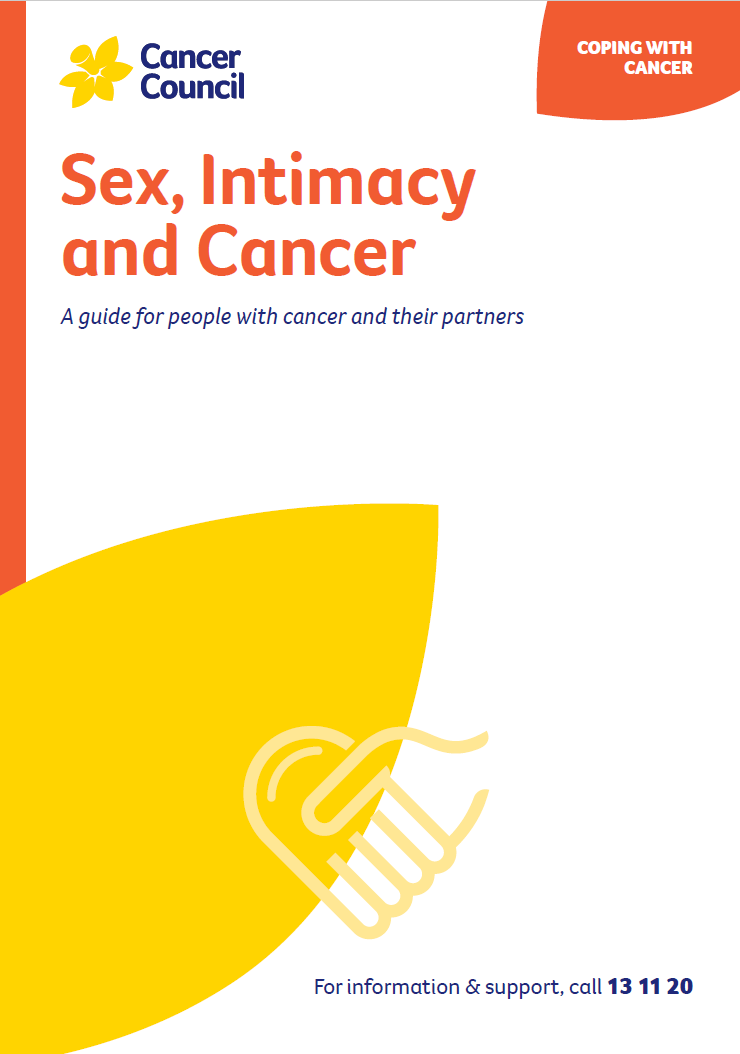- Home
- About Cancer
- Managing side effects
- Sex, intimacy and cancer
- How cancer treatment can affect your sex life
- Communicating with your partner
Communicating with your partner
Talking about changes to your sex life and intimacy can be difficult. If you already had communication or intimacy problems before, a cancer diagnosis can make these worse. Misunderstandings, different expectations and different ways of dealing with change can all cause tension. Or you may feel distant from each other.
Don’t avoid the topic
It can seem easier to avoid talking about sex when you are both tired from dealing with cancer and treatment. Even partners who are usually comfortable sharing their thoughts with each other may not have talked much about sex before. This may be because of embarrassment; not having time or privacy; not feeling confident; fear of rejection; waiting for the other person to bring it up; or assuming things are okay or normal.
Being able to communicate your needs, feelings and thoughts to your partner is now more important than ever. This can help prevent frustrations or tension, for example, if one of you is avoiding sex.
Talk openly
You can adjust to changes in your sex life after cancer with good communication. Let your partner know what you’re going through and how they can help you cope. Talk about how your relationship is changing, how you’re both feeling, and what you’re both worried about. Discuss what you want or hope for, and ways you can enjoy intimacy during and after cancer or treatment.
Choose the right time and place
Sometimes it’s better to talk about sex away from the bedroom. Choose a time when you aren’t tired, rushed or upset about something else. You can also make plans for other ways to be close. Or explore sensual activities that don’t involve penetrative sex, such as hugging, skin-to-skin contact or massage.
Talk to your partner about how they are feeling about sex
Your partner may be worried about hurting you or being too eager. Some people avoid all touch because they don’t know what feels okay.
Talking about how you both feel can help you understand the situation better. You can ask your partner what they want and discuss what feels comfortable for you.
Build your connection
A healthy relationship and trust help you feel safe and confident during sex. Feeling close and being able to talk and listen with respect can make a big difference. We all need emotional support. Sometimes, it may help to take a step back, and ensure that the foundation of your relationship is strong, before focusing on sex.
Ask for help
If talking about sex feels awkward for you or your partner, or you find it difficult to talk to each other without becoming upset, counselling may help. Call Cancer Council 13 11 20, ask your doctor or nurse, or see page 16 to find a psychologist, relationship counsellor or sex therapist. They can help you talk about your sexual concerns and find ways to meet each other’s needs.
In some Aboriginal and Torres Strait Islander communities, and some other cultures, it’s taboo for men and women to talk about sexual matters with each other. If this applies to you, try other ways to express your needs or show what you want. It may help to talk to a counsellor, or visit ourmobandcancer.gov.au.
Not feeling like sexual partners
During cancer, relationships often change. Sometimes it happens gradually almost without noticing, while other times it’s sudden and obvious.
Talking about these changes can help with concerns about sex and intimacy. Spending time together as a couple can rebuild closeness.
Changing your location can help you both relax and focus on things other than cancer. This could be a weekend away, going to a restaurant or simply getting out of the house or hospital to sit in a park.
→ READ MORE: Talking with a new partner
My husband has more sexual needs than me, and during my treatment he didn’t pressure me or make me feel bad about not initiating sex… I really appreciated it.
Catherine
Podcast: Sex and Cancer
Listen to more of our podcast for people affected by cancer
More resources
Dr Michael Lowy, Sexual Health Physician, Sydney Men’s Health, NSW; Gregory Bock, Clinical Nurse Consultant – Oncology Coordinator, Urology Cancer Nurse Coordination Service, Cancer Network WA; Anita Brown-Major, Occupational Therapist and Director, Thrive Rehab, VIC; Helena Green, Psychosexual Therapist and Clinical Sexologist, Insync for Life Psychology and Women Centre, WA; Dr Lisa Mackenzie, Clinical Psychologist, HNE Centre for Gynaecological Cancer, Hunter New England Local Health District, NSW; Dr Tonia Mezzini, Sexual Health Physician, East Obstetrics and Gynaecology, SA; Sophie Otto, Prostate Cancer Nurse Consultant – Central Adelaide Local Health Network (CALHN), SA; Giovanna Raco, 13 11 20 Consultant, Cancer Council Victoria; Kath Schubach, Urology Nurse Practitioner, VIC; Emily Stevens, Gynaecology Oncology Clinical Nurse Consultant, Southern Adelaide Local Health Network, Flinders Medical Centre, SA; Anja Vukovic, Clinical Specialist Social Worker, Gynaecological Oncology, Westmead Hospital, NSW; Alan White, Consumer; Kathleen Wilkins, Consumer; Merran Williams, Consumer.
View the Cancer Council NSW editorial policy.
View all publications or call 13 11 20 for free printed copies.

